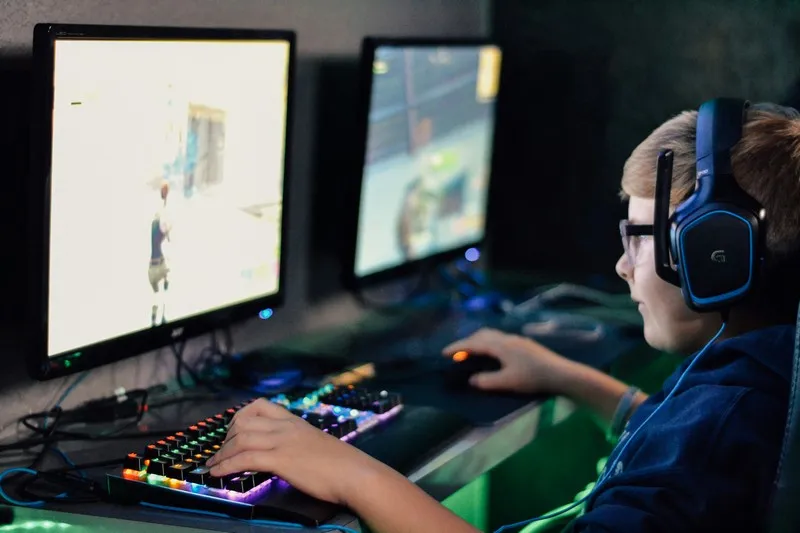Table of Contents
- Introduction
- Video Game Violence as a Cultural Text
- Socialisation Through Video Game Violence
- Structural Inequalities and Video Game Violence
- Moral Panics and Public Debates
- Agency, Resistance, and Player Interpretation
- The Political Economy of Video Game Violence
- Conclusion
Introduction
The debate surrounding video game violence has persisted for decades, drawing attention from academics, policymakers, educators, parents, and the general public. While much of the discussion has traditionally centred on the psychological effects of violent games, such as aggression, desensitisation, or imitation, sociology offers a much broader and more nuanced framework. A sociological approach shifts attention from the isolated individual to the cultural, structural, and institutional contexts in which video games are produced, consumed, and interpreted. Rather than asking only do video games cause violence?, sociologists ask how video game violence reflects social anxieties, reproduces hierarchies, shapes identity, and reinforces or challenges power relations.
This article provides an in-depth exploration of the sociological dimensions of video game violence, aimed at undergraduate students seeking to understand the complexities of media and society. We will explore video game violence as a cultural text, as a medium of socialisation, as a site of inequality, and as an object of moral panic. We will also examine the political economy of violent games and consider the role of player agency in interpreting or resisting dominant meanings. By lengthening and expanding this discussion, the article provides a comprehensive sociological overview of the topic.
Video Game Violence as a Cultural Text
Video games, like films, television, or literature, are cultural texts: structured forms of communication embedded with social meanings. Violence in games is rarely neutral; it conveys symbolic messages about morality, identity, and society.
Violence as Entertainment
The enduring popularity of violent media raises sociological questions about its role in collective culture. From gladiatorial contests in Rome to contemporary action blockbusters, violence has been used to thrill audiences, create dramatic tension, and articulate struggles between order and chaos. Video games inherit this tradition but add interactivity: players do not merely watch but perform violence.
- Violence provides narrative structure, often creating a sense of urgency and conflict resolution.
- Heroic violence reflects ideals of sacrifice, loyalty, and national identity.
- The pleasure derived from simulated violence highlights cultural ambivalence: societies condemn violence in reality yet consume it eagerly in fiction.
Symbolic Representation
The meanings of violent gameplay extend beyond physical combat:
- War games reflect nationalist discourses, glorifying military action or rehearsing geopolitical conflicts.
- Crime games highlight fears and fascinations with urban deviance, policing, and social order.
- Fantasy games often translate violence into symbolic battles between good and evil, echoing mythological traditions.
- Science-fiction games dramatise anxieties about technology, alien others, or the fragility of humanity.
In each case, violence functions as a metaphor for deeper social and cultural struggles.
Violence and Cultural Identity
Video games also participate in constructing collective identities:
- Nations are represented as righteous protectors or heroic soldiers.
- Communities are depicted as threatened by criminals or outsiders.
- The player is positioned as a moral agent, often tasked with restoring order through violent means.
These representations influence how players imagine their own society and its relationship to violence.
Socialisation Through Video Game Violence
Video games are not only entertainment but also tools of socialisation. They provide environments in which players learn norms, values, and acceptable behaviours. Violence within these spaces becomes part of how individuals learn about social interaction.
Learning Rules and Norms
All games operate according to rules, even when violent:
- Players learn that some actions are rewarded (eliminating enemies, securing territory) while others are penalised.
- Cooperation in multiplayer settings encourages trust, coordination, and communication, even within violent contexts.
- The structure of rules may reinforce the belief that violence is an effective way of resolving conflict or achieving goals.
Role-Taking and Identity Formation
Video games require players to take on roles, encouraging experimentation with identity:
- Soldiers embody discourses of patriotism and discipline.
- Criminal protagonists allow exploration of transgression, rebellion, and alternative moral codes.
- Female characters, when offered as protagonists, invite reflection on gender roles within violent spaces.
- Games with morality systems allow players to experience the consequences of violent versus non-violent actions, stimulating ethical reflection.
Through these mechanisms, violent video games become spaces for negotiating selfhood and morality.
Peer Culture and Community
Socialisation occurs not only in individual gameplay but also in community contexts:
- Online multiplayer communities create cultures where norms of competition, aggression, or cooperation are reinforced.
- Peer groups may bond through shared experiences of violent games, constructing collective identities.
- Fan cultures discuss and critique the portrayal of violence, creating meta-discourses around representation.
Structural Inequalities and Video Game Violence
Get the full article AD FREE. Join now for full access to all premium articles.
View Plans & Subscribe Already a member? Log in.





